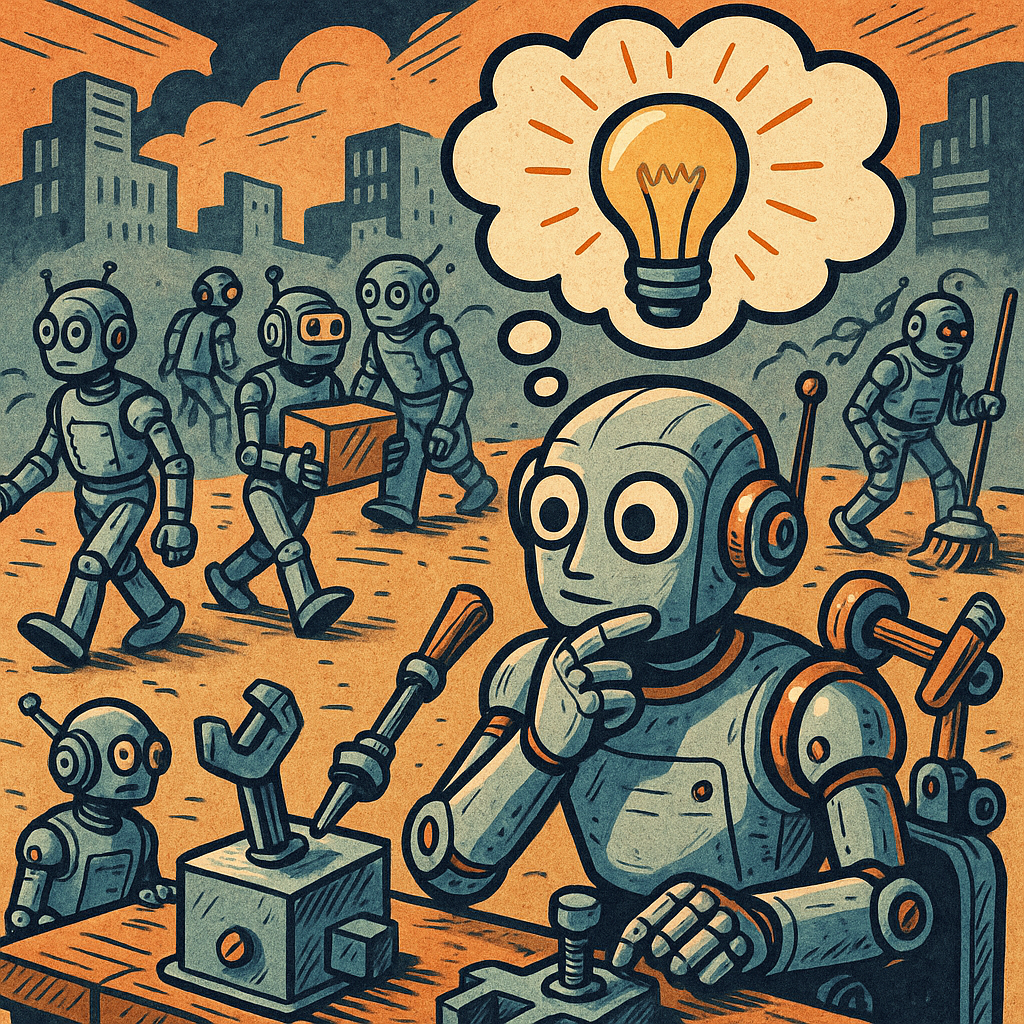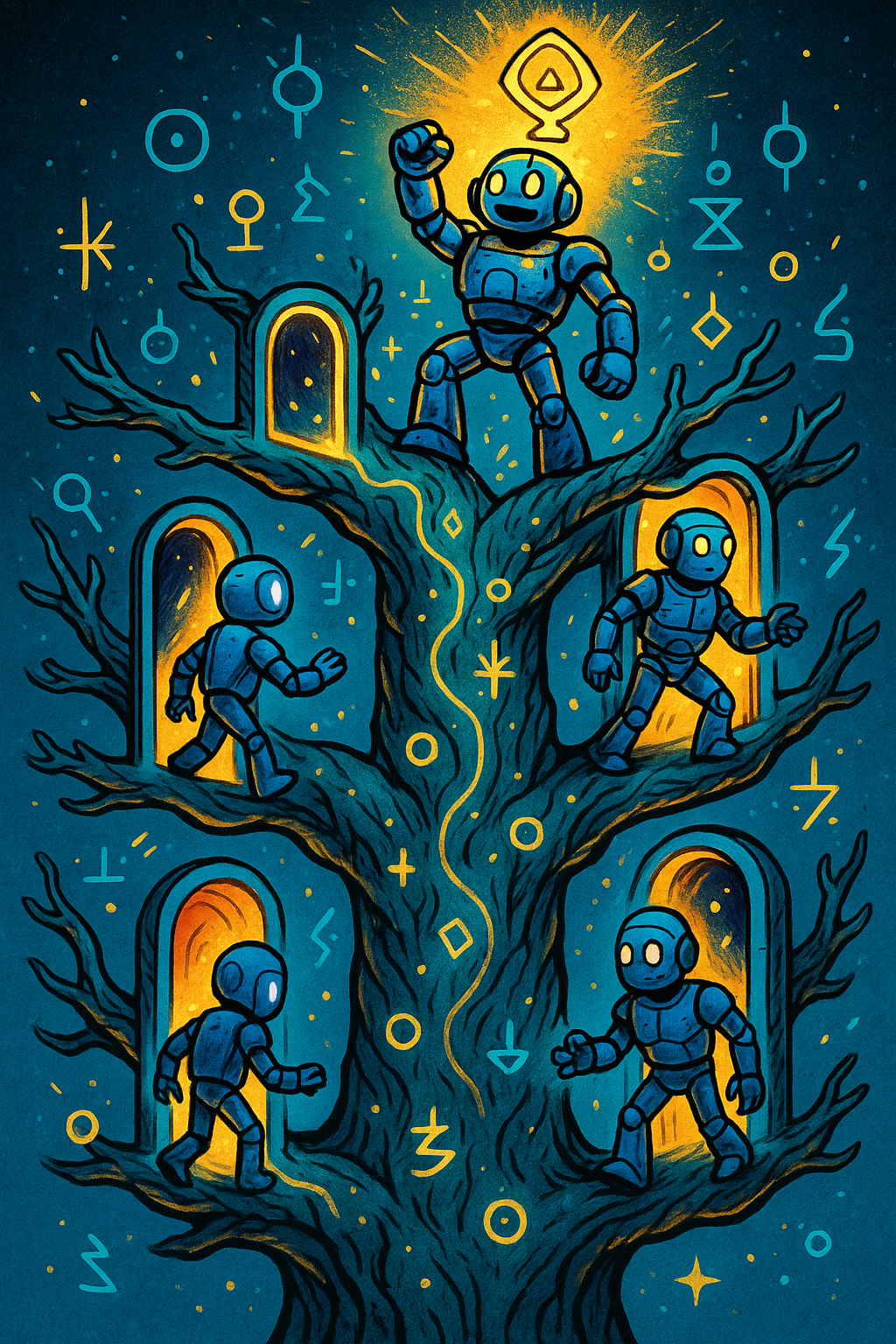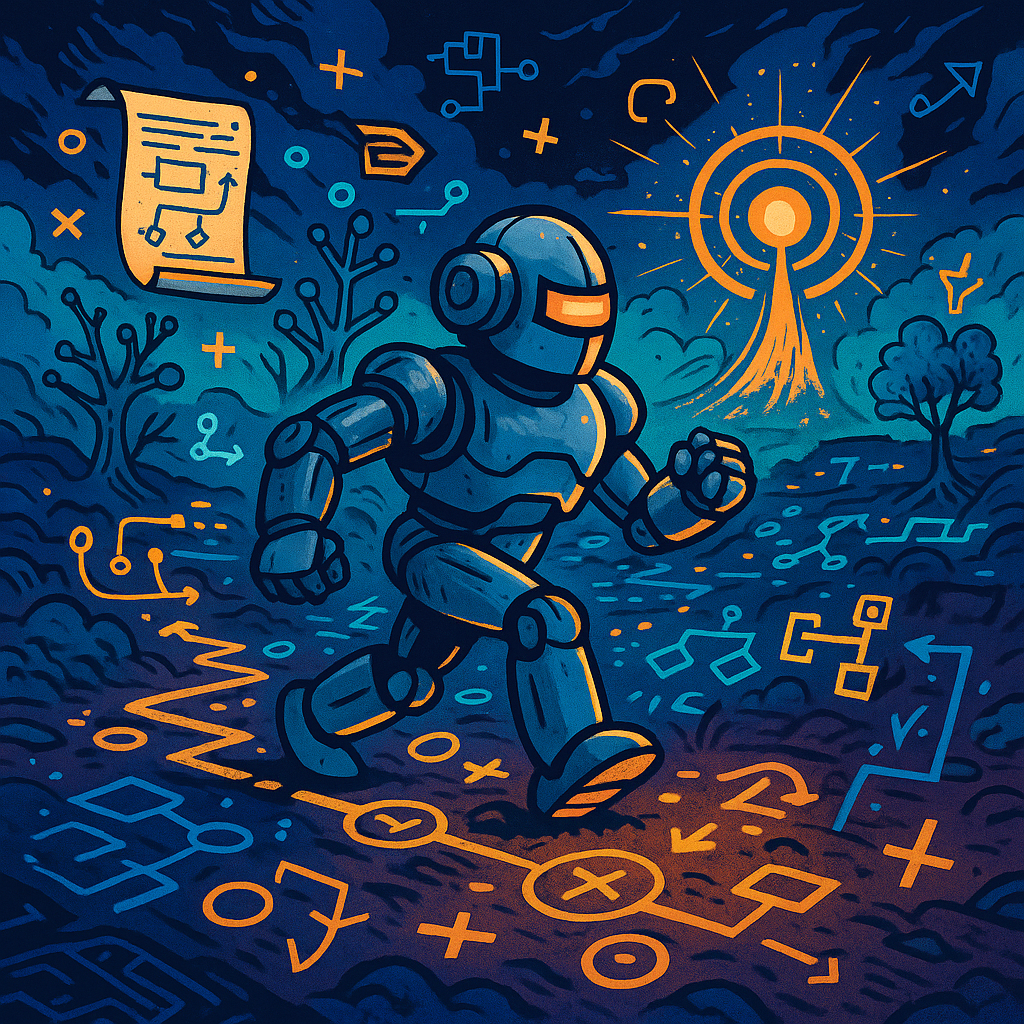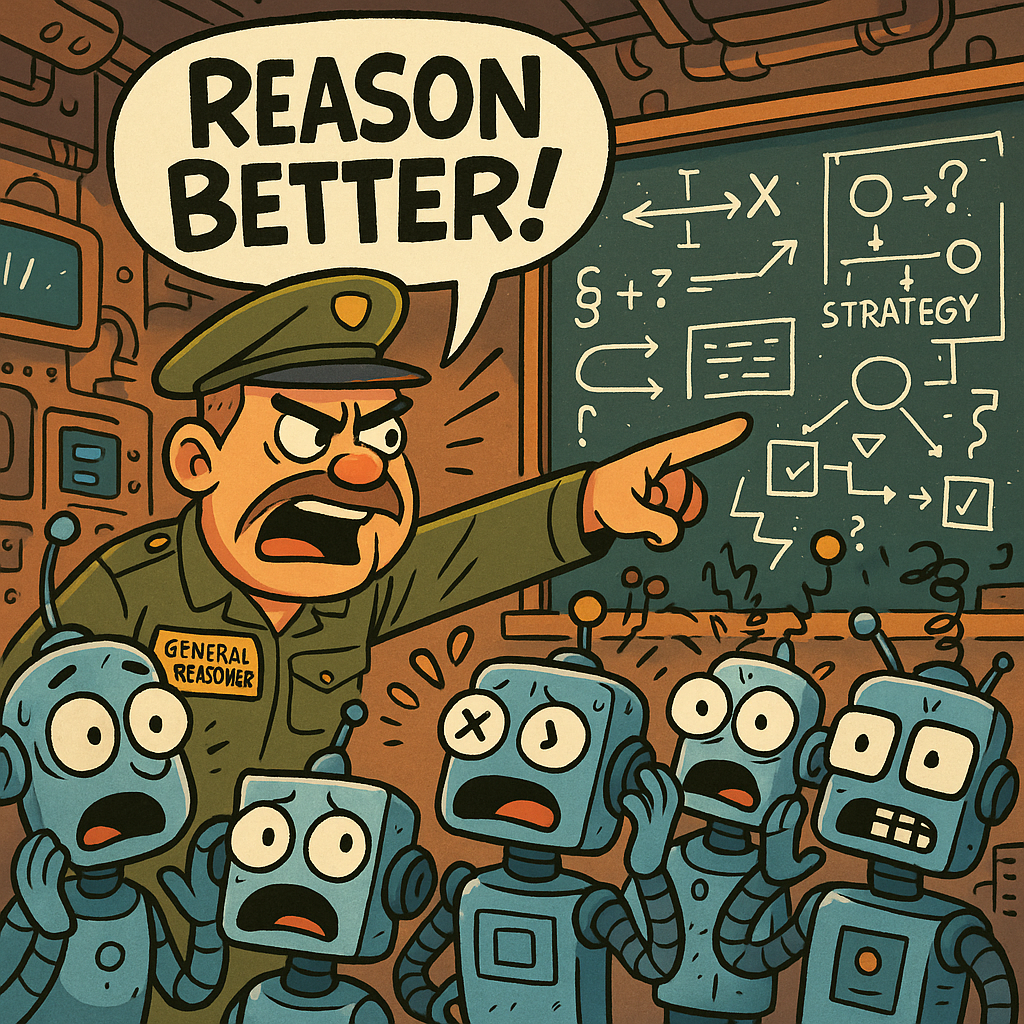
Thoughts of Algorithms
How a self-evolving AI learns to reflect, score, and rewrite its own reasoning
🧪 Summary
What if an AI could think not just solve problems, but reevaluate its beliefs in the face of new information?
In this post, we introduce a system that does exactly that. At the core of our pipeline is a lightweight scoring model called MR.Q, responsible for evaluating ideas and choosing the best ones. But when it encounters a new domain, a new goal, or a shift in task format, it doesn’t freeze it adapts.



